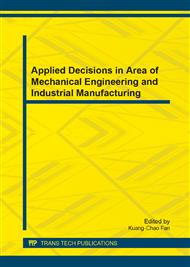p.835
p.841
p.847
p.852
p.856
p.860
p.865
p.873
p.879
A Novel Approach for RFID Data Cleansing Based on Bayesian Inference
Abstract:
Radio Frequency Identification (RFID) technologies are used in many applications for data collection. However, raw RFID readings are usually of low quality and may contain many anomalies. The solution should take advantage of the resulting data redundancy for data cleaning. In this paper we propose a Bayesian inference based approach for cleaning RFID raw data. Our approach takes full advantage of data redundancy. To capture the likelihood, we design a 3-state detection model and formally prove this model can maximize the system performance.
Info:
Periodical:
Pages:
856-859
DOI:
Citation:
Online since:
July 2014
Authors:
Keywords:
Price:
Сopyright:
© 2014 Trans Tech Publications Ltd. All Rights Reserved
Share:
Citation:


